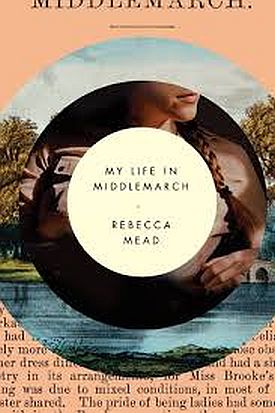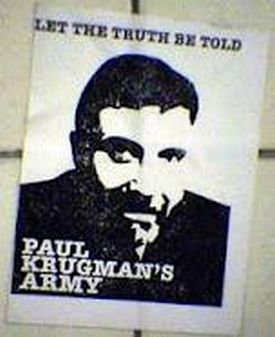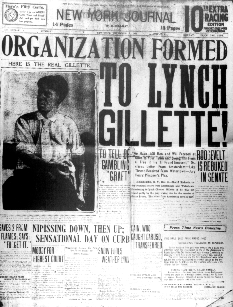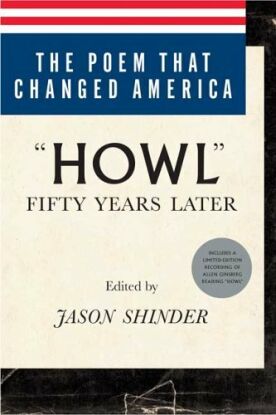Oneself in Others
From The Weekly StandardMy Life in Middlemarch
Author: Rebecca Mead
Hardcover: 304 pages
Publisher: Crown
Let’s face it. Should Rebecca Mead, a New Yorker staff writer, offer us her mere, unadorned autobiography as something to pack along with our pail and shovel as a good beach read, she might risk the odd sarcastic comment from a friend or accusations of presumption or arrogance from those less well-disposed toward her. And yet, she’s proud of her life and has the professional writer’s urge to share.
What to do? Well, one answer is to hitch the memoir to somebody else’s star, somebody of indisputably autobiographical stature. The result is the latest example of that new genre, “part literary criticism, part memoir,” that Elaine Showalter calls “the shelfie.” It may not top the commercial success of Elizabeth Gilbert (Eat, Pray, Love) in turning her less-than-distinguished life story into a celebrity memoir and self-help guide for women, but then what does? George Eliot, née Mary Anne (or Mary Ann or Marian) Evans, is Mead’s choice of eminent author whose life may be said to shadow her own.
Rebecca Mead, too, was a bookish girl from provincial England, not conventionally pretty but not without her charms for men. She has enjoyed success as a writer in the metropolitan center of the English-speaking world of her day and, on her marriage, became a sudden stepmother to three sons, just as Eliot did to the sons of George Henry Lewes. Such frequently cited parallels give Mead the advantage of self-help at second hand, since George Eliot’s life experiences made her very big on wise sayings and how-to-live advice — perhaps even bigger than she was on writing readable novels, though that is clearly a matter of opinion.
Anyway, these wise sayings have stood Eliot’s doppelgänger, like many other readers over the last century, in good stead. In fact, to tread in Mead’s footsteps for a moment, allow me to furnish you with an autobiographical tidbit of my own. I have read Middlemarch four times in my life — twice as a student, twice as a teacher — and apart from a basic outline of the plot and the nature of the pain suffered by the two principal characters (bad marriages in both cases), there are really only two things I can now remember about it. One is Caleb Garth’s advice to Fred Vincy about coming to work at a proper job, where you need to “love your work, and not be always looking over the edge of it, wanting your play to begin.” Very true, said I to myself, as a lad of about Fred’s age. And I have always sought to live by that advice. The other thing I remember is this famous passage:
If we had a keen vision and feeling of all ordinary human life, it would be like hearing the grass grow and the squirrel’s heart beat, and we should die of that roar which lies on the other side of silence. As it is, the quickest of us walk about well wadded with stupidity.
Profound, don’t you think? Mead certainly does, finding in it evidence of the author’s opinion that “if Art does not enlarge men’s sympathies, it does nothing morally.” Mead’s own sympathies, like those of most readers, vibrate in tune with the sorrows of the novel’s marriage martyrs, Dorothea and Lydgate. “I am able,” Mead claims, “not only to imagine their vivid, solipsistic experience but also to see them from Eliot’s authorial perspective of heightened, mature sympathy. In viewing them I am invited to shed my wadded layers of stupidity, and to listen for the sound of growing grass.”
Unfortunately, she does not tell us what she hears when she listens for the sound of growing grass, but we can be pretty sure it’s not growing grass. Nor, presumably, has she successfully shed her wadded layers of stupidity, since doing so — according to George Eliot, anyway — would have resulted in her death. In other words, Rebecca Mead turns out to be not that careful a reader of the one book she says gives meaning to her life. What she takes to be a recommendation for infinitely expansive sympathy is actually a warning of sympathy’s limitations, even in “the quickest of us.” And although we may stipulate that Mead knows something of “vivid, solipsistic experience,” this does not mean the word “solipsistic” is appropriate to describe the experiences of the novel’s characters. She is projecting her own solipsistic experiences onto them, as she does throughout this book.
I have to say, however, that I find my own sympathies enlarging, not quite painlessly, to encompass even Rebecca Mead and her earnest, schoolgirlish, almost Victorian, effort to extract from the greatest work of a classic novelist something of the meaning and purpose her life must otherwise lack. It is so much at odds with how we are nowadays taught to read these works! The vogue, among professional readers of English literature, is all for “deconstructing,” which is the opposite of learning life lessons from Victorian novelists. Instead, we are, in effect, posthumously schooling them, demanding that they see the injustices in their society that are so clear to us but are missed by them and nearly all their benighted contemporaries. Mead is aware of the scholarly milieu out of which her book emerges; she writes of the squirrel’s heartbeat passage that
This kind of editorializing can strike today’s reader as awkward and off-putting. We’re wiser now, we think, than to believe in the authoritative inclusiveness of the first person plural; feminist or Marxist or post-colonial theory has made us conscious of perspectives that have been excluded by, or don’t care to be encompassed by, its embrace. We may even be writing from one of those perspectives ourselves. (I humbly submit: when I write “we,” I mean by it “I, and hopefully you.”)
How touching, this modest attempt to reclaim the common reader’s “we” from its political and academic exile! She is likewise self-deprecating in her account of her (albeit long dead) rival for the position of Eliot’s acolyte, whose name, like her own, is only four letters long and begins with the letter “M.” In 1875, Alexander Main produced, with the author’s permission, a volume titled Wise, Witty, and Tender Sayings, in Prose and Verse, Selected from the Works of George Eliot, which was a huge success and went through numerous editions during Eliot’s lifetime and after. Mead’s account of her predecessor’s labors and his “assumption of intimacy” with the great woman is at times rather sour, yet she writes, “I recognized in his enthusiasm for her works enough of my own admiration for her to feel an awkward fellowship with him.”
Though she doesn’t quite acknowledge it, that fellowship extends to the revolutionary assumption, once common but now long out of use, that we might have something to learn from the past. You won’t find much original wisdom in this volume, any more than you would have done in Mr. Main’s, apart from what, with a bit more effort, you can get for yourself from Middlemarch or a straightforward biography of George Eliot. One exception is when Rebecca Mead observes that “a book may not tell us exactly how to live our own lives, but our own lives can teach us how to read a book.” Just so. Her own may not directly take on the academic correctors of the past, but it does suggest how we might live our lives so as to learn from it.
Discover more from James Bowman
Subscribe to get the latest posts to your email.







